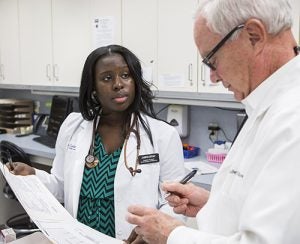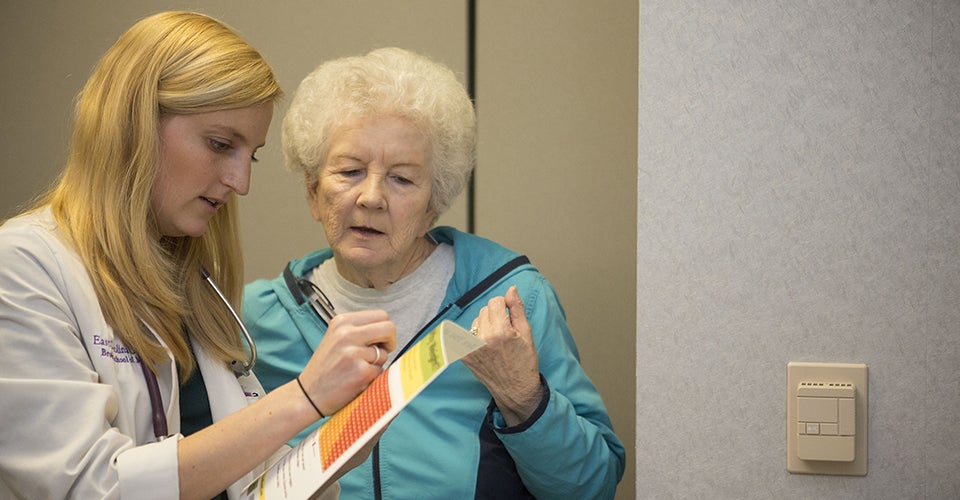INTERNATIONAL EXCELLENCE
Brody School of Medicine receives award for social accountability
The way East Carolina University’s medical students serve the communities of North Carolina is earning international recognition for the Brody School of Medicine.
Brody is one of seven schools globally to receive a 2016 Aspire to Excellence Award, which recognizes excellence in education at medical, dental and veterinary schools. The award is distributed under the Association for Medical Education in Europe, and will be presented at the organization’s conference in Spain in August.
The award is given in four categories, and Brody was honored in the social accountability category for emphasizing training in primary care settings in local practices throughout its students’ four years.
The Brody School of Medicine is nationally recognized for preparing primary care physicians who practice in medically underserved communities. All those admitted are North Carolina residents and the majority of its graduates practice primary care in North Carolina.
“We’re ecstatic about this award,” said Dr. Robert Carroll, associate dean for medical student education, who prepared and submitted the application with the help of his colleagues. “It helps to validate a lot of the things we’re doing here.”
Carroll continued, “One of the unique features of Brody curriculum is that we leverage our geographical location so that early clinical experiences are with practicing physicians in the community, as opposed to hospital setting. That’s important because most of medicine is practicing in the community, not just at big academic research centers. Our students get the benefit of practicing in rural environments.”

Brody student Jasmine Bryant assists Dr. Robert Shaw at a volunteer clinic in December 2015.
“We’re elated to have international recognition for something at which we’ve always exceled,” said Dr. Elizabeth Baxley, a family physician and senior associate dean for academic affairs. “Social accountability and service learning are increasingly important values in medicine. They’ve always been part of the core values of Brody.
“Other metrics don’t always capture the strength of this school. This award is a great way to show the value we bring to the state and region.”
The Aspire award program began in 2012 as a way to recognize excellence in teaching in addition to research in the field of medicine.
“When evaluating medical schools, research productivity is very easy to quantify and compare,” Carroll said. “For a long time, that was one of the only ways to measure the quality of a medical program. Through rigorous peer evaluation, this award recognizes top programs in educational areas like social accountability, student engagement, faculty development, and student assessment.”
This is a competitive award, according to Carroll. If no school meets the requirements for a category, then an award is not given. Last year there were no recipients in the social accountability category – something that caught Carroll’s attention. “That sounds like us,” he said before beginning the application process.
This was Brody’s first time applying for this award.
“We’re proud to be among an elite group of schools recognized, particularly in social accountability category, because that’s so consistent with who we are,” Baxley said. Of the four schools honored in this category, only two were from the U.S. The other two were in the United Kingdom and Australia/New Zealand.
In addition to recognizing current efforts, this award will help strengthen service learning efforts at the school, according to Carroll.
“One of the benefits of the award is it forced us to compile information that existed in separate pockets across the school and university,” he said. “Because social responsibility is so intrinsic here, everybody does it, but not everybody talks to each other. Putting the application together was a great opportunity to collect evidence and show impact. It helps bring renewed focus to the role of the medical school as a change agent. We are reducing healthcare disparities in the region.”
